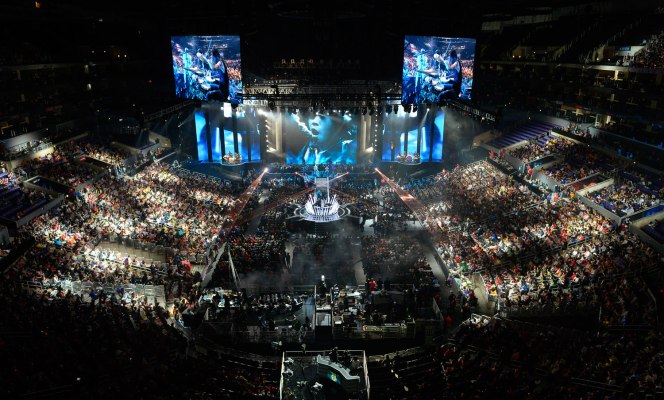Hello and welcome back to our regular morning look at private companies, public markets and the gray space in between.
Today we’re taking a look at the world of esports venture capital investment, largely through the lens of preliminary data that we’ll caveat given how reported VC data lags reality. That phenomenon is likely doubly true in the current moment, as COVID-19 absorbs all news cycles and some venture rounds’ announcements are delayed even more than usual.
All the same, the data we do have paints a picture of a change in esports venture investment, one sufficient in size to indicate that an esports VC slowdown could be afoot. As with all early looks, we’re extending ourselves to reach a conclusion. But… no risk, no reward.
We’ll start by looking at Q1 2020 esports venture totals to date, compare them to year-ago results, and then peek at Q4 2019’s results and its year-ago comparison to get a handle on what else has happened lately in the niche. The picture that the quarters draw will help us understand how esports investing is starting a year that isn’t going as anyone expected.
Venture results
Today we’re using Crunchbase data, looking at both global and U.S.-specific venture totals in both round and dollar volume. To get a picture of the competitive gaming world, we’re examining investments into companies that are tagged as “esports” related in the Crunchbase database. Given that this is a somewhat wide cut, the data below is more directional than precise and should be treated as such.
One more note on venture data lag. What is it? The gap between when a VC round is closed and when it is announced. Whenever you see a piece on a venture investment, it’s covering a round that happened a few weeks before. Nearly always. Toss in COVID-19, as we noted at the start, and things could be even slower than usual. So, if we’re going to note what appears to be a slowdown, the new, reported figures will need to be sufficiently bad as to overcome those hurdles.
Let’s check the data. From Crunchbase, here’s how our search for esports investment around the world shook out:
- Q1 2020 esports venture rounds to date: 13 (eight in the United States)
- Q1 2020 esports venture dollars invested to date: $14.8 million ($9.6 million in the United States)
And the same search, but for Q1 2019:
- Q1 2019 esports venture rounds: 43 (15 in the United States)
- Q1 2019 esports venture dollars invested: $122.7 million ($70.7 million in the United States)
Even with an expected decline in Q1 2020 venture round and venture dollar results due to lag, the most recent venture data looks grim.
But one quarter isn’t enough to call a trend, especially when we’re living through a changing world and a global economy still shuddering in the face of COVID-19. So, we grabbed a bit more data to fill out our vision. Looking at Q4 2019 we see 24 global esports venture rounds (removing two that didn’t fit) and around $185 million in global esports venture investment. That period compares unfavorably to its year-ago comp, Q4 2018. That period saw 26 rounds and more than $213 million in venture investment.
We can therefore add to our first look at the data that Q1 2020 is worse than its sequentially preceding period (Q4 2019) along with its year-ago quarter (Q1 2019), and that the most recent fully recorded period was also down from its year-ago comp.
It’s hard to find much optimistic in that data, which, again, will change as more information becomes known.
An expected slowdown?
Covering the esports venture world last November, I noted three interesting, and then-recent venture rounds into the space and a new fund focused on making bets in the niche. It felt then like the esports venture boom was still happening. Data shows it may have been slowing some, but things were still active at the time.
Now with COVID-19 disrupting leagues, venues and more, esports is caught (ironically, to some degree) in a similar bind as other sports. I expect esports to bounce back faster than traditional sports as it distances its players and still allows them to compete, albeit without slick casting desks live audiences, and the like. Esports then will probably trough and recover as a spectator sport. The business impact of the previously modest global venture slowdown (slowly coming into focus as 2019 came to a close), now possibly accelerated by a broad and perhaps sector-impacting venture slowdown, is less clear.
One final note. I’ve read and heard from industry players for what feels like years that the esports world was doing a great job at growing audience and content consumption, but was doing a somewhat poor job at monetizing that growth. If that’s still the case, any venture drought could be prove more lethal than we’d expect in other, venture-backed industries.
From my chair, so long as League of Legends and Starcraft 2 don’t stop, it’s all good. Go TeamLiquid!
